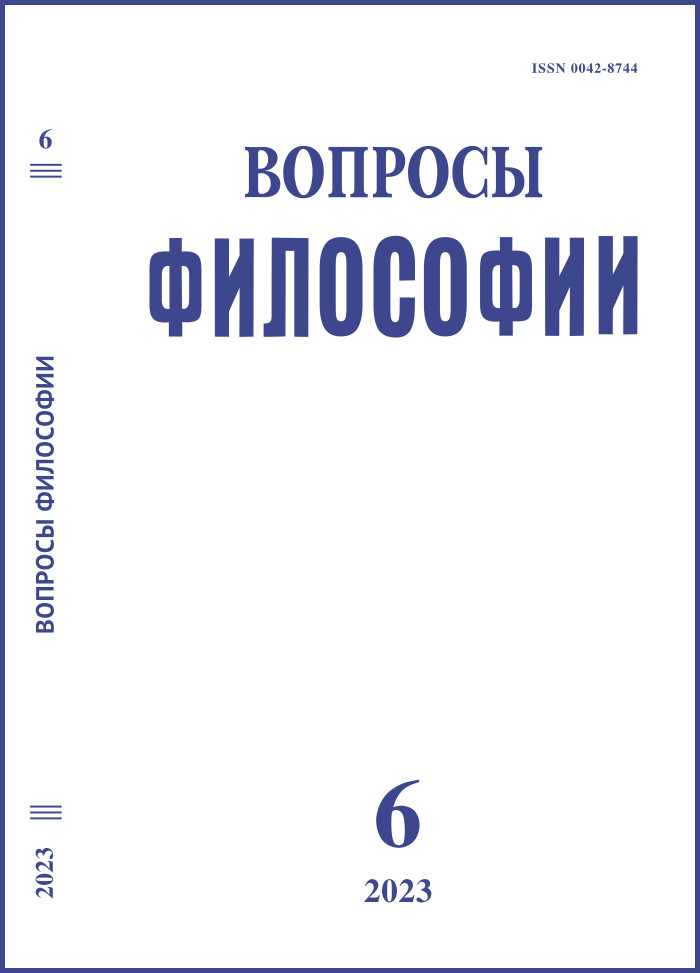Метафорическое соотнесение как механизм мышления
DOI:
https://doi.org/10.21146/0042-8744-2023-6-95-103Ключевые слова:
метафорическое соотнесение, восприятие, мышление, язык, абстрагирование, гипостазированиеАннотация
В статье представлена трактовка метафорического соотнесения (МС) как механизма мышления, направленного на поиск и разработку максимально эффективной в данном культурно-историческом контексте мыслительной стратегии, закрепляемой и транслируемой языком. Под механизмом МС понимается процесс, в котором определенным образом взаимодействуют одни отобранные мышлением характеристики объекта и подавляются с возможностью последующей актуализации другие. Осознание Я как экзистенциально «нестатичной» системы, несущей в себе мир как значимый смысл, позволяет переосмыслить взаимосвязь языка, мышления и восприятия. Особое звучание обретает проблема установления той очевидности и достоверности – первичной связности опыта – в обладании которой познающий субъект конструирует для себя реальность. Рассмотрены идеи Г. Гербера и Г. Гельмгольца о восприятии как «бессознательном умозаключении», а также И. Канта о «сокрытом в глубинах души» «логическом такте». Показано, что метафорическое соотнесение может выступать в качестве механизма своеобразной интуитивной логики, знаменующей отправную точку познавательной рефлексии и стоящей у истоков возникновения языковой реальности. Метафорическое соотнесение выступает механизмом абстрагирования и концептуализации, фиксирующим ракурсы познавательной рефлексии. Представлены аргументы в пользу того, что если рассматривать мышление как вычисление лучшей из возможных стратегий интерпретации опыта, что отражается в языке, всегда «высвечивающем» существенную, экзистенциально важную для носителя языка сторону объекта, то механизм МС, будучи имманентно присущ процессам мышления, позволяет «рассчитать» мыслительную стратегию, чья адаптивная ценность заключается в возможности эксплицирования тех элементов опыта, в которых есть насущная экзистенциальная потребность, и подавления тех, в экспликации которых в данный момент нет необходимости.

